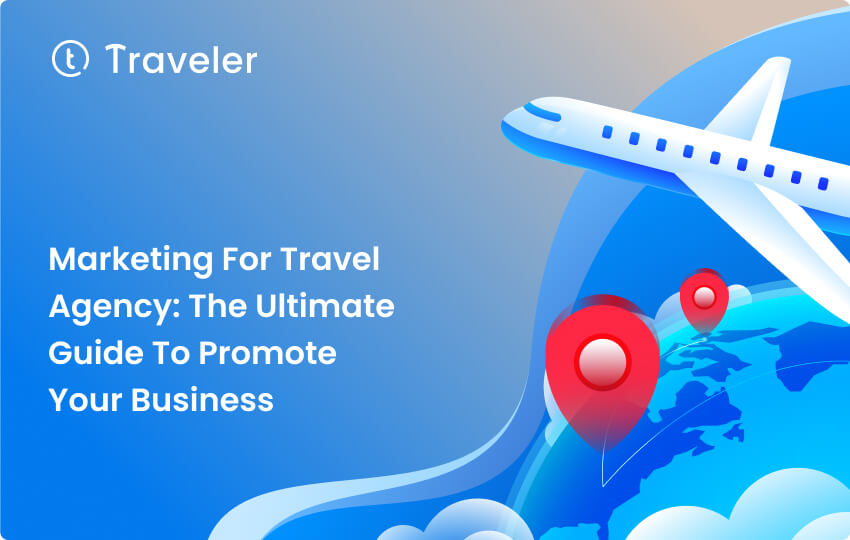
Marketing is an important part of running a business because it helps find and keep customers. It includes everything that has to do with getting people to buy or use a product or service, from making the product and advertising it to selling it and helping customers.
Marketing is especially important for a travel agency that depends a lot on how happy its customers are. A good marketing plan will help the agency get the word out about its services and get to know potential customers.
It can also help them stay in touch with their current clients through email campaigns and social media platforms, among other ways. By taking care of these connections, the travel agency can earn the trust of its customers.
This guide will give you an overview of the most important parts of a travel agency’s marketing plan, like knowing your target market, making a unique value proposition, building your brand, and using digital marketing tools.
Understanding Your Target Marketing for Travel agency
When it comes to digital marketing, understanding your target market is key. Knowing your customer base can help you craft ads and content that speaks to their interests. A great way to understand a target market is by breaking it into three segments: demographics, psychographics, and behavioral:
1. Demographics:
Demographics are the physical traits of the audience, like their age, gender, race, location, etc. Once you have this information, you can create marketing plans that are geared toward these groups.
For example, if your travel agency specializes in luxury vacations, you might want to target people with higher incomes because they are more likely to be able to pay for expensive trips..
2. Psychographics:
Psychographics can help travel agencies give customers more personalized experiences by giving them a better idea of what they want and what they need. Knowing what people like to do when they travel, where they want to go, how much money they have to spend, etc., can give you valuable information about how to reach these potential customers and give them exactly what they want.
3. Behavioral Segments:
Customers are split into groups based on how they act toward certain products or services. This could include things like how often you buy something, how loyal you are, how much you use it, and how you prefer to talk to people. Since there are so many different kinds of travelers, travel agencies need to use behavioral segmentation to figure out which ones will make them the most money and how to serve their specific needs in the best way.
Here is an example of how you can incorporate your understanding of the market:
Imagine you own a business that specializes in luxury adventures for wealthy people in their late 30s to early 50s who want to try new things. Make sure your message gets to the right people by taking the time to find out who they are and what they want.
To start reaching out to wealthy adventure seekers in this age range, you should first learn more about them. What do they most value? Are there some things or experiences that you’d rather do or try than others? It’s also important to find out where these potential customers hang out online and offline, who they talk to, and what topics interest them.
Once you know what this group of people is interested in, you can make your marketing strategy more effective by making content that meets their needs.
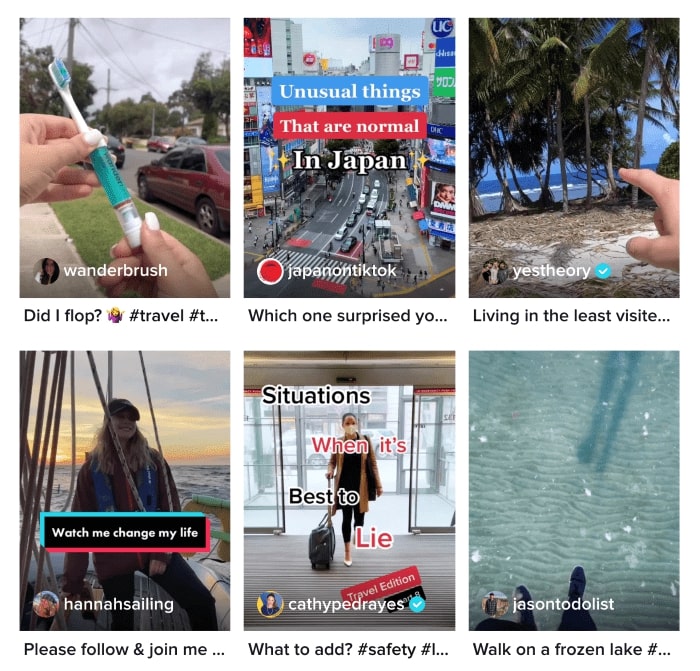
Creating a Unique Value Proposition
A travel agency’s marketing plan needs a unique value proposition (UVP) in order to be successful. It’s a promise or statement that tells customers what they’ll get if they choose your agency. A well-written unique selling proposition (USP) makes you stand out from the competition and shows potential customers why your services are better than those of your competitors.
For travel agencies, a unique value proposition (UVP) should focus on how their services are different from those of competitors in terms of ease of use, price, customer service, or anything else that makes them stand out. For example, some agencies might focus on making packages and help more tailored to each client than others. Some may have prices that are lower than average because they have access to deals and discounts.
How to Make a Unique Value Proposition:
1. Find out who your target audience is and find out what they want and need when they book trips or vacations.
2. Think about what’s unique about your services that might interest them, like discounts for early bookings or customer service in more than one language.
3. Once you have a good idea of how to make your travel agency stand out, write a clear and concise message that captures its essence.
Here’s an example of how to come up with a unique selling point:
Imagine that your travel agency offers high-end, personalized trips with local guides and unique cultural activities. This offer gives travelers an experience they won’t forget that can’t be found anywhere else. It also lets you stand out and market your services in fun and interesting ways.
When making a unique selling proposition (USP) for your agency, it’s important to focus on the little things that make these trips stand out. This could be done by highlighting the activities that are available at each destination or by showing testimonials from past clients who had amazing trips with your agency.
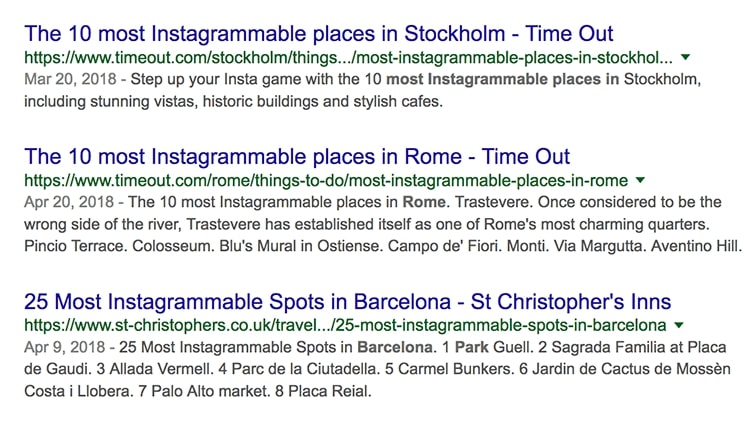
Developing a Marketing Mix
Next, having the right mix of product, price, place and promotion is essential. By utilizing this mix of elements, you can have a successful marketing strategy that will bring in more customers.
1. Product:
Product refers to the type of services offered by your travel agency. You must make sure that they are relevant and valuable to your potential customers.
2. Price:
Price can also be an important element in your marketing plan for the travel agency. It’s important for you to determine what pricing strategies best suit your company’s goals and objectives before developing a final price point.
3. Place:
For a travel agency, place can include both online and offline sales outlets, such as tour operators, wholesalers, OTAs (Online Travel Agencies), mobile apps, websites and retail stores. To maximize reach potential your customers should be able to book flights and tours conveniently across all these platforms.
4. Promotion:
Promotion is also key when creating a successful marketing strategy for any business, especially travel agencies. Promotion should focus on driving visibility through multiple channels like search engines, email campaigns, social media campaigns and influencer marketing.
Here is an example of how you develop a marketing mix:
Imagine that your travel agency offers package tours at high prices. This is a great option for people who want to travel without a lot of stress. Travel agents and online booking sites sell these packages, which makes it easy to find the best place to go on vacation.
To make sure your customers have the best possible experience, you focus on promotional events and targeted advertising. This lets customers take advantage of discounts offered by the travel agency and learn more about the different places they can go, all while getting a great deal.
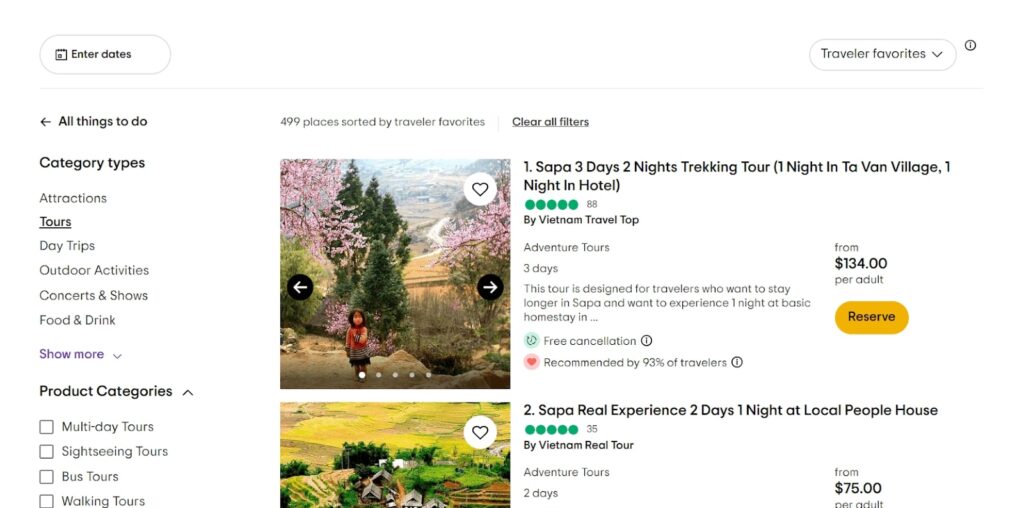
Building Your Brand
Branding helps customers trust and stick with a company, which leads to higher profits. Branding also helps your travel agency stand out from the competition and attract more customers.
A strong brand has a unique logo, slogan, and message that stays the same across all platforms. Your logo should be simple and easy to remember, and your slogan should say what makes your travel agency unique. Also, it’s important to always use the same colors and fonts so that customers can recognize your business whether they’re looking at it online or in print.
Here are the steps to take when building your brand and making sure it stands out among competitors:
- First, you need to figure out who your target market is. You can do this by looking at demographics and making personas.
- Next, come up with a mission statement that will guide all of your marketing efforts. This should explain why your travel agency exists and what makes it different from other businesses in the same field.
Then comes the visual branding, which includes logos, colors, fonts, and other design elements that are used consistently across all platforms, such as the website, social media channels, etc. So, customers know them right away, without any confusion or doubt.
Here is an example of how you build your brand:
As a travel agency, you create a consistent visual identity and message that speaks to potential customers. This can be done by using customer reviews and partnerships with high-end hotels and resorts to show customers that when they book through your agency, they will get good products and services.
Visuals like logos, colors, fonts, shapes, images, etc. that stay the same over time help your business have a look that customers can recognize and trust. In a similar way, you create consistent messaging so that customers know what to expect from you each time they contact your business. This could be done through marketing materials like brochures or websites, but also through social media platforms or email campaigns.
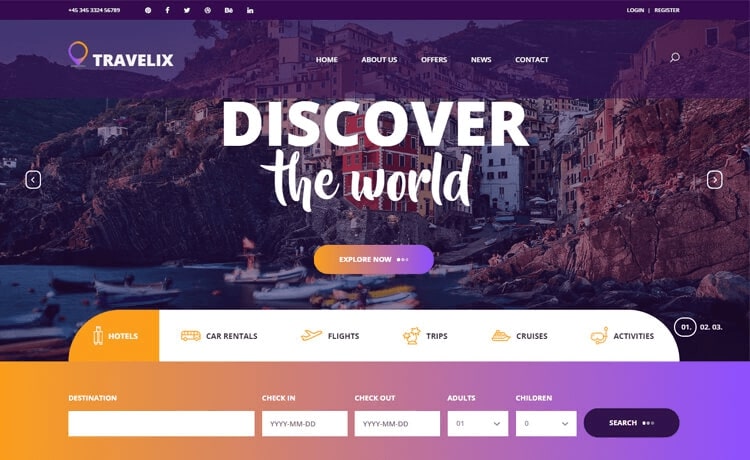
Utilizing Digital Marketing
Digital marketing is important for any travel agency that wants to be successful because it helps raise the agency’s profile and get more leads and sales. When travel agencies use digital marketing, they can reach a wider audience, promote their services more effectively, and learn more about how customers act.
Digital marketing is the process of promoting and selling products or services through digital channels like search engines, websites, social media platforms, email campaigns, mobile apps, etc.
Digital marketing has many benefits for travel agencies, such as raising brand awareness and making it easier to target ads and campaigns based on customer information. Personalized offers have increased customer engagement and loyalty. Being able to keep track of analytics in real time to help make better decisions and a lot more.
Various types of digital marketing can be used to promote a travel agency’s services and products. Some of these include:
1. Search engine optimization (SEO): SEO involves creating content that uses targeted keywords to show up higher in search engine results pages (SERPs).
2.Social media: Social media platforms such as Facebook, Twitter, Instagram, and LinkedIn offer great opportunities for travel agencies to engage with potential customers.
3.Content Creation: Creating interesting and engaging content, such as blogs or videos on travel-related topics, can help raise awareness about your services and generate interest among potential customers.
Here is an example of how you utilize digital marketing:
As a travel agency, you use the most up-to-date digital marketing tools to connect with and talk to potential customers. Social media, email marketing, and search engine optimization are all used to tell people about the best parts of a destination and the unique things to do there.
For social media, you can post high-quality images on Instagram or Twitter. By sharing interesting content, like photos, videos, or reviews of the places you’re promoting, you can get more followers and show what makes those places special.
For email marketing, you send out newsletters with information about deals and discounts so that people can find out about any new offers.
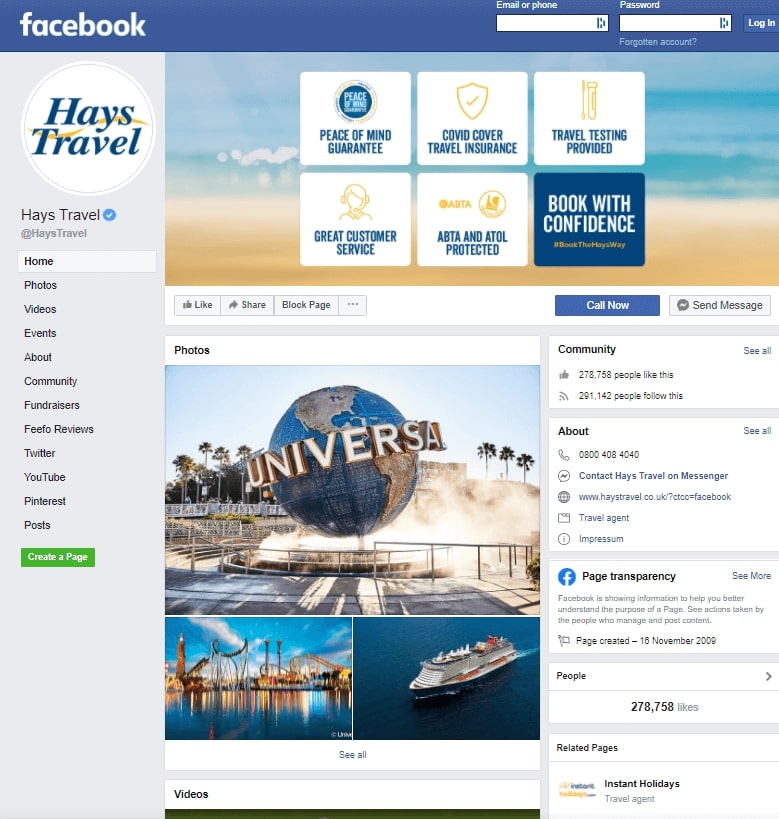
Measuring and Analyzing Your Marketing Efforts
Lastly, a travel agency that does well needs to measure and analyze its marketing efforts. Getting to know how customers interact with your brand will tell you a lot about how well your strategies are working. By measuring and analyzing key metrics, you can find places to improve to get customers more involved, increase sales, and make sure your business is a success.
To stay competitive, travel agencies need to keep track of key metrics that measure how well their marketing is working. Important signs of how well your campaigns are doing are website traffic, cost per acquisition (CPA) or cost per click (CPC), social media trends, email open rates, and user retention.
There are many tools that can help accurately measure how well marketing works. Google Analytics is a great tool, and most people use it to find out about their websites. This tool gives you a detailed look at who visits your site, what they look at, how long they stay on each page, and more. This lets you see how well different campaigns have worked to bring people to your site and get them interested in certain pages or products.
Example: A travel agency uses Google Analytics and customer feedback surveys to track website traffic, conversions, and customer satisfaction, and they change their marketing strategy based on what they learn.
Here is an example of how you measure and analyze your marketing efforts:
The power of data is being used by your travel agency. You are using Google Analytics and customer feedback surveys to learn important things about how customers use your website, what conversions they are making, and how happy they are. By looking at this information, your travel agencies can change how they market to better meet the needs of their customers.
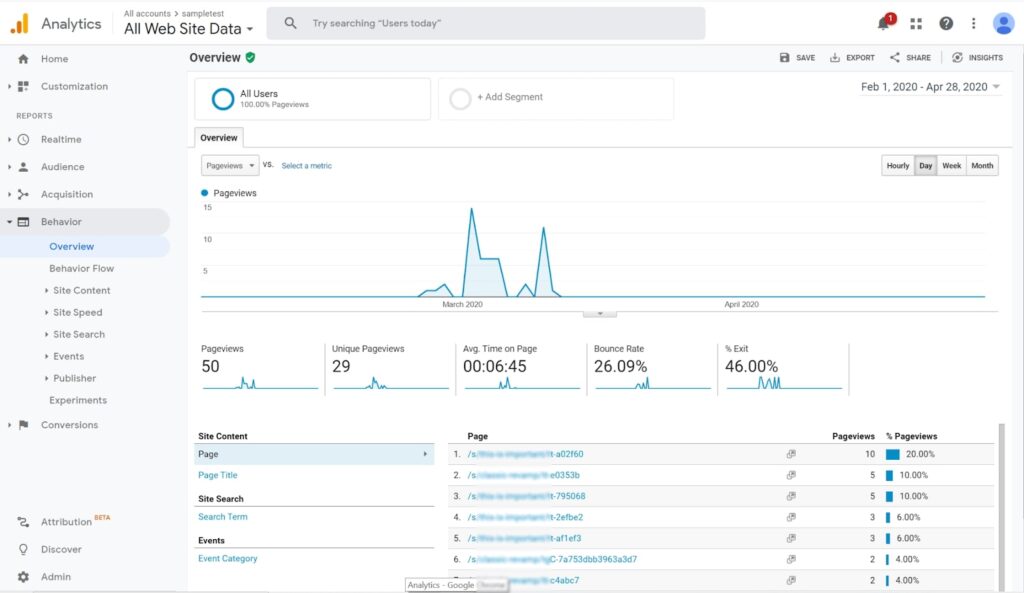
Conclusion
Marketing isn’t hard for a travel agency, but it’s important for success. Understanding the market, making a unique value proposition, creating a marketing mix, building a strong brand, using digital marketing, and measuring and analyzing your marketing efforts are all important parts of a good strategy.
To get the most out of your digital marketing, you need to stay on top of trends and use tried-and-true methods. Travel agencies can reach the people they want to reach and get more customers with the right plan. Take the time to go through each step, and don’t be afraid to get started!
